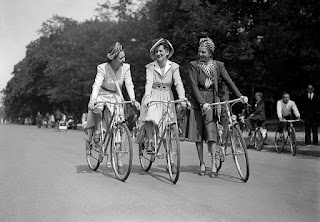WEEK 5 - SHAKESPEARE TODAY
QUESTION: Analyse contemporary Shakespeare productions with reference to live performances you may have seen or clips or footage available online. You should comment on what you notice about them and how they differ from what you know about the original performance conditions of Shakespeare’s work? (Don’t be afraid to point out the obvious).
Consider how these productions are employing all the techniques, technology and resources of modern theatre.
You can use Digital Theatre http://www.digitaltheatre.com a password to access this site is available from the library
 I watched a contemporary version of Othello directed by Trevor Nunn. This version was performed by The Royal Shakespeare Company in 1990 and had Ian McKellen play the role of Iago. I found this modern production very interesting because they had decided to set it in the Victorian times, instead of Elizabethan times, when Shakespeare set it. It was interesting because the Trevor Nunn had decided to use very minimal set and had not used any multi media to add a more visual element. I think that he made this decision because he wanted to make the play authentic to how it would have been watched in the Elizabethan times, however I think that he could have used modern technology to benefit the performance and make it more exciting. The play had been modernised, in the fact that there were female actresses playing the female parts and a black man playing Othello. At the time Shakespeare was writing it was unheard of to have either black or female actors, both were illegal. Nunn also made an interesting decision, by casting the character of Cassio's lover as a black woman, which is not specified in the play. I felt that by doing this, it bought the play into the modern day.
I watched a contemporary version of Othello directed by Trevor Nunn. This version was performed by The Royal Shakespeare Company in 1990 and had Ian McKellen play the role of Iago. I found this modern production very interesting because they had decided to set it in the Victorian times, instead of Elizabethan times, when Shakespeare set it. It was interesting because the Trevor Nunn had decided to use very minimal set and had not used any multi media to add a more visual element. I think that he made this decision because he wanted to make the play authentic to how it would have been watched in the Elizabethan times, however I think that he could have used modern technology to benefit the performance and make it more exciting. The play had been modernised, in the fact that there were female actresses playing the female parts and a black man playing Othello. At the time Shakespeare was writing it was unheard of to have either black or female actors, both were illegal. Nunn also made an interesting decision, by casting the character of Cassio's lover as a black woman, which is not specified in the play. I felt that by doing this, it bought the play into the modern day. Peter Brook's version of A Midsummer Night's Dream, is completely different to anything that would have been performed in Shakespeare's time. Their version is very experimental and uses physical theatre. Brook's aim was to create something completely different and perform Shakespeare in a radical new way.It is completely different to anything that would have been done 100 years ago, let alone in the Elizabethan times, however it is also not traditional to today's theatre. Their version hardly used any set and was performed in a white box. They use physical theatre to make the story come alive. This is completely different to traditional Shakespearean theatre because the acting would have been very melodramatic and gestural. The actors were generally picked on popularity and genuine talent was considered to be less important. It was key however that the audience liked the hero or main character, because the audience used I get involved, cheering their favourite actors and booing the bad characters.

























